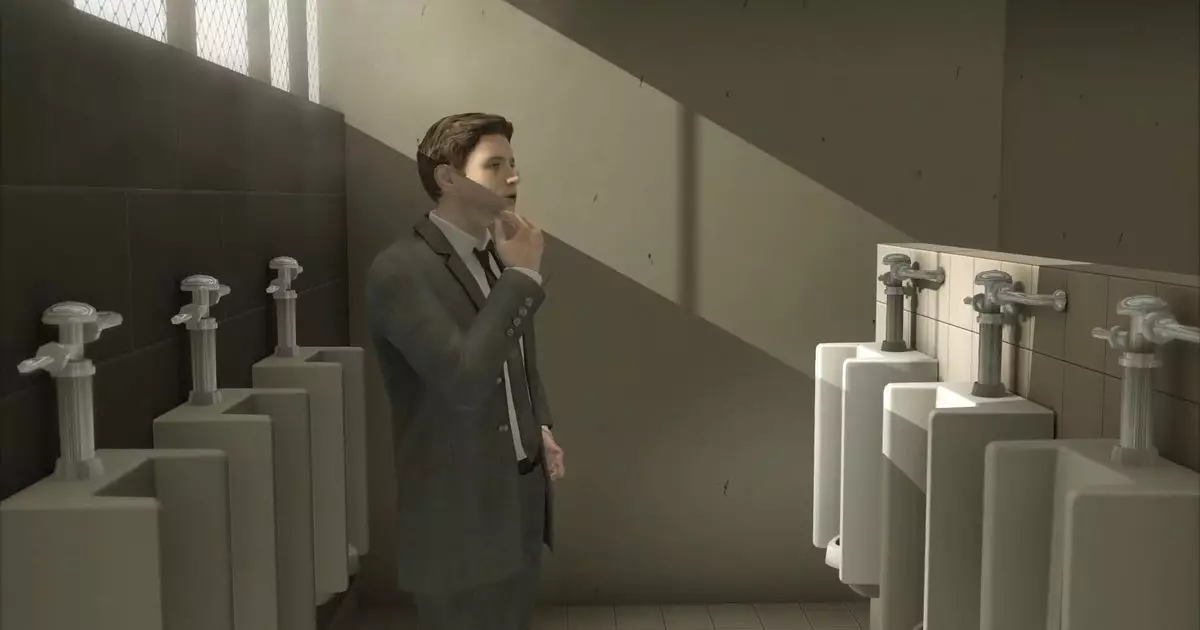In an age where entertainment options are sprawling, the niche genre of YouTube video essays has birthed a subculture that delights in trivialities. Among these peculiar videos is the mesmerizing phenomenon of creators honing in on seemingly inconsequential aspects of video games, turning what would be ordinary gameplay into a profound examination of meaning. One such exemplary case is the exploration of “body functions” in blockbuster titles, with particular attention to the player interactions involving urination captured in David Cage’s cinematic adventure, *Heavy Rain*. The allure of dissecting these mundane details allows for a unique commentary on narrative depth, and how such trivialities can reflect broader themes in video game storytelling.
For anyone familiar with *Heavy Rain*, it’s no surprise that its convoluted narrative and theatrical presentation leave room for both admiration and mockery. Structured around the pursuit of a serial killer, this interactive drama places players in the shoes of multiple characters navigating emotional turmoil. Still, one could argue that the game is entangled in its own comedic contradictions. Allie Meowy’s humorous yet earnest quest to catalog every instance of playable urination in the game elicits laughs while also providing a surprising amount of poignant observations. This peculiar blend of absurdity and intellect invites viewers to consider how we engage with digital characters on a physiologically intimate level, despite the overarching gravity of the plot.
What’s striking about Allie’s analysis is her thoughtful approach to what is, ostensibly, a glibly comical task. By sifting through the layers of pixelated pee, she assigns significance to these interactions, linking them to a broader societal commentary on gender dynamics, player agency, and emotional authenticity. Her critical lens reveals that while the male protagonists face the burden of controlling their bathroom breaks, Madison, the only female character, automatically flushes without the interaction required of her male counterparts. This seemingly minute difference sheds light on perceptions of autonomy within the narrative.
As Allie humorously notes, the act of urination becomes a distinctive mechanism within the game. It’s not simply a biological necessity; it enhances the narrative arc in subtle and sometimes absurd ways. By demonstrating the straightforward integration of bodily functions in this choice-heavy thriller, the video posits that mundane actions are imbued with significance when linked to character development. Through this lens, the act of peeing—or not—transcends its base function, evolving into a revelation of character psychology and player choice.
In her meticulous dissection, Allie’s observations reveal a disconnect between player choices and the dynamic portrayal of the characters’ realities. She points out that players can irresponsibly consume beverages without consequence; they cannot carry the emotional weight of their nourishments into bodily needs. This whimsical yet profound observation highlights the limitations of game mechanics, emphasizing the artificial constraints that dictate player behavior. The option for a “pissless playstyle” becomes a lighthearted way of pointing out how games can escape the burden of realism when it suits their design ethos while simultaneously suggesting that such choices can reflect deeper tendencies in player agency.
Allie Meowy’s video essay exemplifies the artistic merit in exploring minute details of gaming culture, positioning her work as not merely a comedic exercise, but a genuine exploration of narrative structures and player interactions. By diving into these undercurrents, viewers are invited to reflect on how mundane details often imbue stories with depth and intricacy. This commentary can resonate with a broader audience searching for meaning in their digital interactions, especially given the shifting landscapes of narrative forms in gaming.
Moreover, this kind of analysis encourages critical thinking about the essence of video game storytelling itself. In a medium where the cinematic experience is evolving, dissecting seemingly trivial elements allows players to reconsider their engagement with narrative choices. The intersection of humor and heartfelt analysis seen in these unique video essays encourages a broader conversation around the impact of design and the emotional weight of actions, how players invest themselves in digital worlds, and the diverse expressions that emerge from these experiences.
In an art form that thrives on spectacle and immersion, it’s easy to overlook the power of the mundane. The exploration of urination in *Heavy Rain*, as detailed by Allie Meowy, not only serves as a commentary on the game’s structure but also showcases the beauty in seemingly trivial details that contribute richly to storytelling. The ability to find humor and profundity in these interactions reflects a unique appreciation for the medium, inviting players and analysts alike to ponder the intricate connections between narrative, mechanics, and human experience. As we dive deeper into the world of gaming, it becomes clear that even the most banal elements can reveal layers of meaning, ultimately encouraging us to experience video games not just as escapism, but as genuine reflections of life, complete with its hilarious absurdities and poignant moments.


Leave a Reply